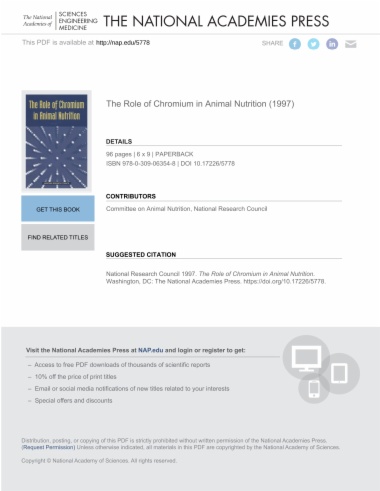

The American feed industry manufactures tons of dietary supplements and additives each year for inclusion in the diets of food-producing animals. Some scientists have suggested that chromium should be a key ingredient in nutritional supplements. Controversy exists, however, over whether chromium sources should be approved as feed additives and whether enough data exist to establish dietary requirements. Chromium use has been suggested to have positive impacts on farm profitability, and many animal health benefits have been attributed to chromium supplementation, including increased longevity; enhanced reproduction; decreased incidence of metabolic disorders, stress effects, and disease; reduced need for antibiotic usage; improved immune response; and lean carcass quality.
This book addresses recent research on chromium in animal diets; metabolic interactions between chromium and other nutrients; assessments of form and species interactions; supplementation effects; bioavailability of chromium forms and sources; and effects of diet composition, stressors, and animal physiological status on chromium utilization. It also provides recommendations on the essentiality of dietary chromium in domestic animal species and guidelines for use of dietary chromium.